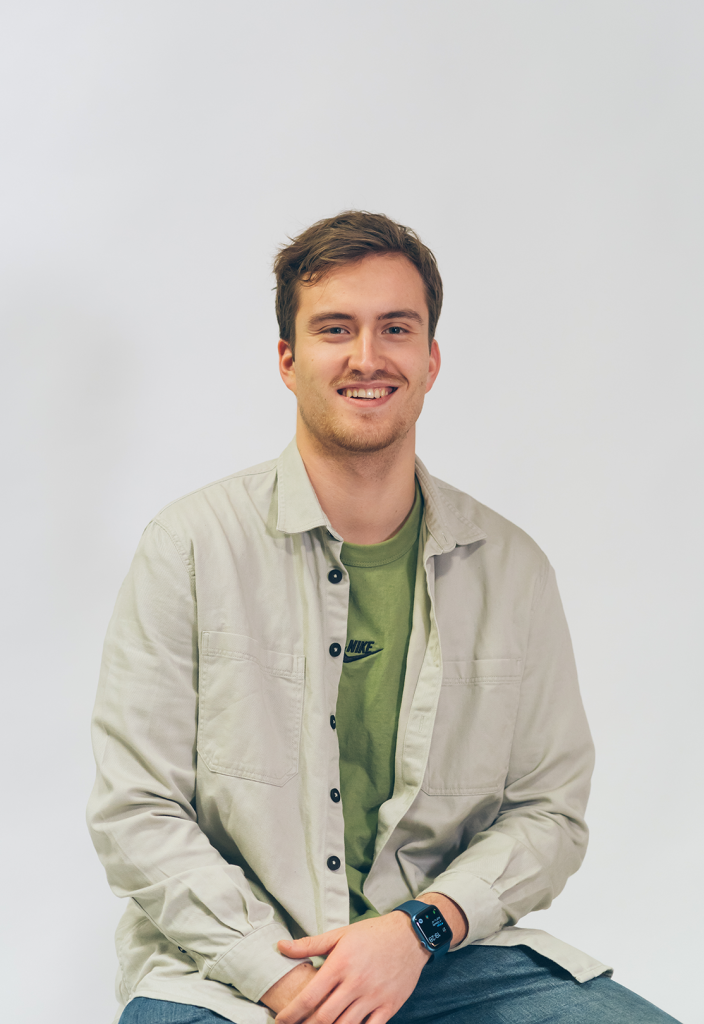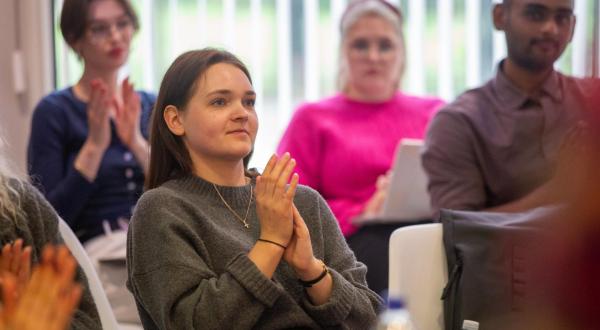How a Dog Inspired a Start-Up
Spring usually comes with extra work for many students – there are exams to prepare for and final papers to hand in. Ralfs Brumermanis, 23, has a lot on his plate. He is studying in the International Business and Law master's programme at Rīga Stradiņš University (RSU), has started writing his master’s thesis, and is putting the knowledge he has gained to good use by developing the idea for a start-up that he has created together with his friends.

Can you share the idea you are currently working on and how you came up with it?
The idea for my start-up came during my bachelor’s studies, when I was studying in the Start-Up Entrepreneurship programme. Together with my fellow students, we tried to develop our first ideas. Nothing came out of them, but that was no reason to give up. I continued studying and learning until one day I was talking to my fellow student Edgars Lācis and Kristers Moisejs, who I met at the incubator, when we had a lightbulb moment. Kristers is one of the pioneers of 3D printing in Latvia, and we had the idea to create 3D-printed non-toxic toys and accessories for dogs with the possibility to customise them. The pet segment is a huge industry with a lot of potential. We started at the end of August or September last year, so this is a very fresh idea. We are at an early stage of development, but we are making use of the diverse opportunities that the RSU B-Space Business Incubator offers.
I assume someone on the team is a dog lover.
I’m probably the biggest one. I have a dachshund who loves to play. I buy him a lot of different things, and that’s where I saw the opportunity.
People might be willing to try, but they’re afraid they don’t have a specific idea. Where would you recommend that people start?
I think you can try in any field these days. You can also find information on the internet, but it’s worth looking for support in business incubators, where they have experienced managers who can point you in the right way and give you the resources you need to develop your idea further.

At incubators, you don’t just receive mentoring, but also a very practical support, such as a secure physical workplace and the possibility of applying for funding. Because you have to try, you have to act, and the incubator is a very good place for that. We started a few months ago, but we already have an officially registered company and have printed our first products. We use an online platform for e-commerce. You can find us at www.3dpetsworld.com. We have a lot of diverse plans, but at the moment, using the LEAN approach, it’s a matter of figuring out how to move forward with minimal resources and whether the idea will even develop into a larger business. We are testing the market because it is not enough to just be interested ourselves. There is a lot of marketing work to be done.
How have your studies helped you to develop your idea?
Studies give you both theoretical knowledge and train you to work independently, to look for information, to go through difficulties. I chose to write my master’s thesis on the market competitiveness strategy for our idea and for this particular company, which means that I will spend several months researching what I can later apply in reality in my company.
Am I right in concluding that by studying international business and law, your future plans could expand beyond Latvia?
Yes, definitely. I am not the only one who sees the Latvian and Baltic markets as a very good testing ground. You can’t, however, create so-called unicorns here – companies worth at least one billion. In 2021, Printful became the first unicorn in Latvia. When companies reach this threshold, the whole start-up ecosystem benefits, as there is an opportunity to learn from them and often to receive investment for new ideas. So, we need to look much broader.
But coming back to my studies, I really appreciate my fellow students. People come to study for a master’s degree with a wealth of experience that I can draw on. I am one of the youngest in our group and my peers come from banking, real estate, logistics, and manufacturing. These are not just potential cooperation contacts, will, I hope, turn into long-standing connections. I would also like to mention our lecturers who are high-level specialists and always ready to give advice.
If someone is considering starting their studies, why should they choose RSU?
Something I value, and that others also highlight, is the international environment here at RSU. Whether you are studying in the library or go to your lecture hall, you have the feeling like you are abroad. It’s very cool, and I don’t think it’s possible to experience it anywhere else. Another valuable aspect is the excellent lecturers we have here and their experience. The third is that the University uses the latest technologies, like the RSU e-studies platform, which makes studying very convenient.
Where do you see yourself in 10 years?
I think I will be in Latvia, and I will have achieved financial freedom. I realise that if I want to grow my start-up, I must put in an insane amount of work, but I am ready for whatever lies ahead.
As a young start-up entrepreneur, what support would you expect from the government?
We have already adopted quite a good business model from Estonia and other countries, but the biggest obstacle at the moment is bureaucracy – it takes much longer in Latvia compared to Estonia, and it is not possible to do certain things online. In Estonia you can, for example, set up your own company online in 15 minutes, whereas here it takes several weeks. This is discouraging. So, I would say that we are on the right track, but there is still a lot of work to be done.
Related news
 18 Student teams to start developing their ideas in B-Space incubation programmeFor RSU Employees, For Students, Innovation, B-Space
18 Student teams to start developing their ideas in B-Space incubation programmeFor RSU Employees, For Students, Innovation, B-Space


